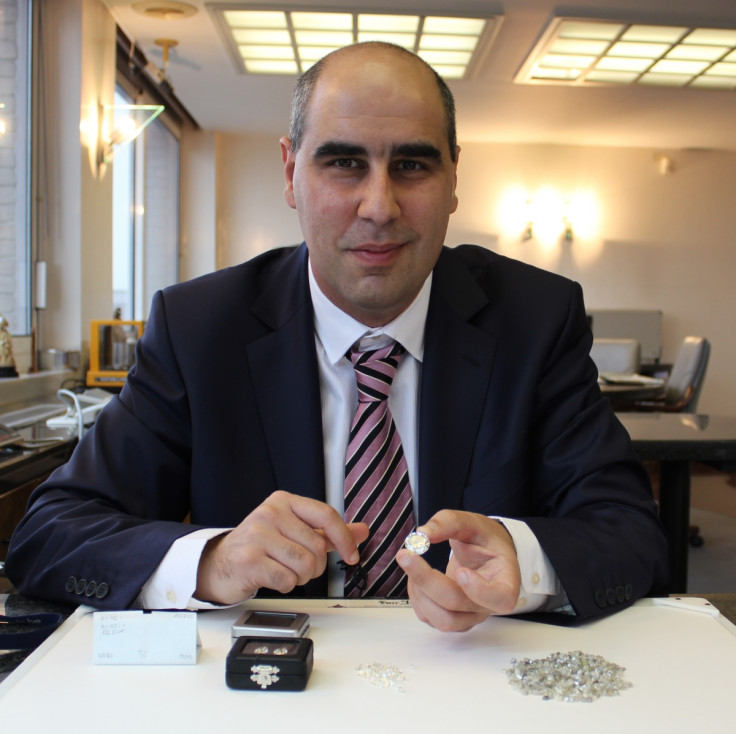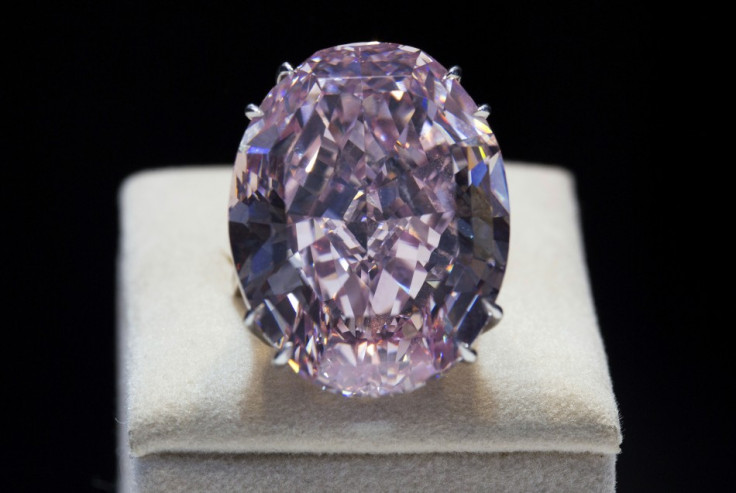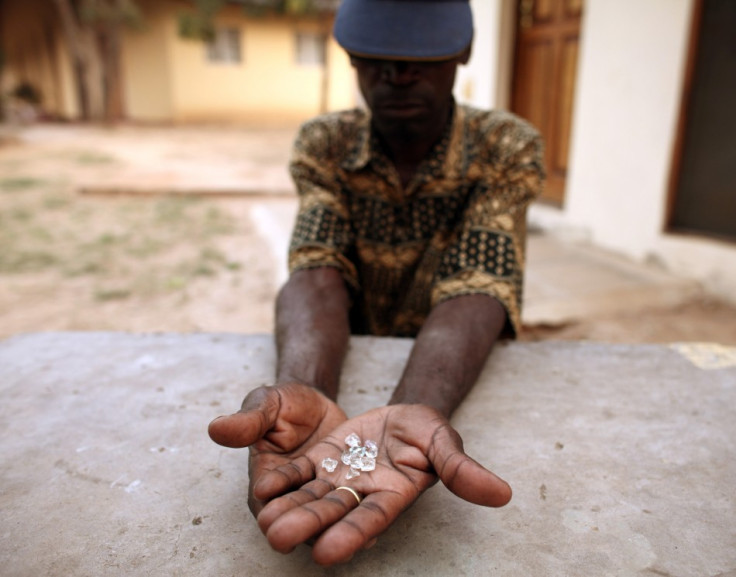Why Blood Diamonds No Longer Stifle Prices and Investment

To use a cliché, diamonds are a girl's best friend but according to industry experts, it's also exceptionally and continually lucrative to the investment community.
As International Diamond Week kicks off in Israel on 7 April, IBTimes UK decided to get the latest, behind the scenes update on the precious gem sector, with Vashi.com's CEO Vashi Dominguez.
Q: International Diamond Week is being held in Israel, why is it being held there?
A: It's being held in Israel because it's one of the world's three major centres for polished diamonds, alongside Belgium and India.
Over the years, it has become one of the leading diamond markets exporting $6bn on cut diamonds across the world, with an emphasis to Hong Kong, Switzerland and Belgium. As such it's the perfect place to hold such a large international event for the diamond industry.
Q: Why should people get into the diamond industry - is there a ceiling to how prices can go?
A: There has never been a better time to invest in diamonds, however they are a long-term investment and one needs to consider investing only in the gems cut and polished over a period of 10 years.
The rough-diamond market is expected to remain balanced from 2013 through 2017. From 2018 onward, as existing mines get depleted and no major new deposits come online, supply is expected to decline, falling behind expected demand growth that will be driven by China, India and the US.

Whilst diamond prices continue increasing and outperforming other equities it's from 2018 that prices are set to explode, a time when investing will be challenging due to the restricted supply and therefore early investors (2014-2017) will be the ones taking the significant returns.
Diamonds are more likely to increase in value even in times of deflation. While many segments of the marketplace may start to lose money diamonds will typically retain their value and continue to increase in price. Banks do not regulate diamonds so the investment is one that is protected from bankruptcy or changes in the market.
As diamonds are traded worldwide they are not dependent on one economy, instead they hold a steady value around the world. Unlike real estate investments, diamonds do not require continual maintenance nor do they require taxes to be paid year on year. This makes them inflation-proof as an investment vehicle.
When we look at one to five carat diamonds over the last five years they have produced an average compound return of 11.6%.
That is across all categories, the rarest are even higher, not to mention diamonds last longer than a lifetime, so there is no need to worry about them wearing out. I would recommend to anyone who wants to invest in diamonds to buy at least £5,000 worth and keep them for a minimum of 5 years, but ideally 10 years.
In today's varying financial climate, more and more people are looking for safer investments and with the knowledge that diamonds will remain popular for many years to come; there is no better way to invest your money.
Q: When we talk about investing, is it more lucrative to invest in exquisite jewellery rather than rough diamonds?
A: Over the last decade investing in rough diamonds was more lucrative if you were well connected in the trade. Rough diamonds have been increasing 3 times faster than polished diamonds, and now the time has come for polished diamonds to catch up.
When you take into account that polished diamonds come from rough diamonds, it's easier to understand that polished prices will need to increase at a higher rate to catch up otherwise diamond manufacturers will stop manufacturing diamonds (from rough to polish), as it will not be commercially viable, and in this case supply will shorten even further, which will in turn make the outstripping ratio of demand over supply even larger.

Today therefore investing in exquisite jewellery is a better proposition although one needs to ensure the jewellery is being purchased at true wholesale prices.
Whilst the jewellery purchased at high-end stores is forecasted to increase in value over time, unfortunately these buyers will never see a return because they have paid a premium price to start. Buyers should be aware that VAT is levied at 20% on all retail purchases, and cannot be reclaimed when sold on unless you are in the trade, making it a disincentive to casual buyers hoping to make a short-term profit.
Q: Would you say it's best to be involved in the whole vertical process to get the best benefit of working in diamonds?
A: Absolutely, this is the only way to benefit in an industry with multiple layers in the supply chain and especially when considering that every layer adds a hefty mark-up in the process. Originally leading an international diamond wholesale company, I've built strong relationships with diamond mines and cutters which enable us to bypass three layers in the supply chain, in other words cut out the middle men. This translates into benefits both for the company and our customers.
Q: What are the risks though?
A: The risks are high if you also choose to manufacture (cut and polish uncut diamonds into cut diamonds) because when you buy rough diamonds you don't get the variety of options you have in the polished market, meaning that you end up with a wide spread of sizes and qualities and you then need to have a wide variety of customers from wholesalers to retailers to ensure your inventory isn't blocking cash which can lead to business failure.

Q: Do you think the diamond industry gets too much of criticism over conflict diamonds / blood diamonds - do you think the industry has actually come a long way?
A: There have been concerns about blood diamonds, particularly after the Leonardo Di Caprio film and it has become a necessary global debate.
I do believe the industry has come a long way, with the involvement of the United Nations and the decision to install the Kimberley Process in 2003, ensuring that there are less than 1% of conflict diamonds on the market.
This helps keep them off the mainstream market, safeguarding the average man or woman on the street from accidentally handing over money to violent rebels in war zones.
The Kimberley Process Certificate Scheme guarantees the provenance of each stone, reassuring the buyer and making it socially acceptable to wear diamonds with ease that is conflict free.
Unfortunately, as with any industry we all pay the price for a few unethical traders which diminish consumer trust in the industry but I firmly believe this is a serious matter and as such will always require serious attention.
© Copyright IBTimes 2025. All rights reserved.






















